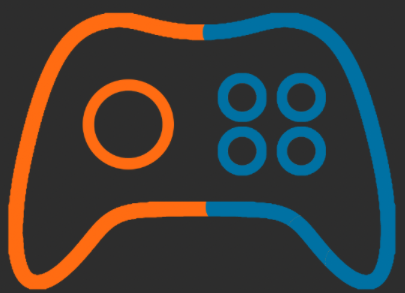Photo: Matti Vuorre
Everyone knows games can affect your mental health, but does anyone know how researchers measure the degree of the impact? Exactly how accurate are these measurements?
Matti Vuorre is an assistant professor at Tilburg University in the Netherlands. He has been studying all sorts of themes related to the correlation between technology use and psychology for a decade.
In the recent 5 years, Matti has been specifically focusing on the research of video games and how they impact the way people think or feel.
“It’s a pretty interesting field because gamers are, of course, very engaged with games, but they can also be very engaged with participating in the research,” he says. “It’s especially interesting to see that whenever we put out a paper or communicate with our results, they always end up being in subreddits or other communities.

“It’s also a fairly niche field, which actually can bring some satisfaction or extra enjoyment from your work, to be studying something that is enjoyed, understood and discussed by many people outside of your scientific expertise.”
Despite how passionate Matti is with his field of study, his recent research paper seemed to yield quite unusual results. The title of one of his papers is, in fact, ‘Time spent playing video games is unlikely to impact well-being’.
Does this mean Matti will no longer have anything to study about? If gaming has little impact on the well-being of the gamer, the research field itself surely might seem pointless to further investigate.
The truth is, these were anticipated results, due to the typical characteristics of studies on psychological effects.
Matti says, “The first thing to note is that when you’re talking about the psychological effect of something – in this case video gameplay – there’s going to be, I believe the global population is almost 8 billion now, so 8 billion different effects because people engage with games or technologies in their own different ways.
“So in our manuscript, we put forth the argument that when you aggregate all those features and think about the average relationship, well, that’s going to be very, very small.”

Since Matti’s research was based on a fairly significant number of participants, the results adhered to this theory.
He says, “We were building on our previous work in which we had studied a broadly similar population of players, from two specific games, one being ‘Animal Crossing’ and the other one being one of the ‘Plants Versus Zombies’ games. Those were fairly specific looks, and we found that people who play more reported just a tiny bit higher levels of life satisfaction.
Related Articles:
He sheds light on the methodology in more detail, saying, “So we worked with a number of different video game developers to study seven different video games of different genres.
“We asked those video game companies to send emails to their players asking them whether they’d like to be involved in a study conducted by independent academic scholars. We got around 35,000 or so individuals overall to join this study and asked questions every two weeks for six weeks.
“So altogether three times we asked them how they felt using different kinds of measures. One of the more interesting ones might be life satisfaction. On the other end, we asked the video game companies for the logs of player activities in their games. So we knew exactly when these people were playing and could see how much they were playing and when.
“And we tried to then predict how satisfied they were in their lives with the degree of play they had before. Just to see what their, in the previous two weeks, whether the amount that you played might predict how you feel then later on.
So we’re comparing individuals to themselves essentially then asking whether you feel better following weeks when you played more than you usually would.” In short, it was a combination of responses from the participants and an analysis of the trend of the hours they spent playing games.

The problem here is that, as mentioned above, the results will almost never be outstanding because the average data of these players will always show mediocre figures. Matti claims that increasing the amount of case studies or the number of games studied in the research will just mean less chances of seeing notable results.
Instead, he believes that other measures must be taken to get more accurate portrayals of the picture. He says, “Of course this is a pretty broad look at the concept. Firstly, because the timescales that we were studying were on the order of weeks. So we essentially looked at your total amount spent playing in a two week period and how that predicts your life satisfaction and basically your mood levels.
“Then we moved on to the following time point, and that might not be exactly how well the human effect works. Maybe it’s more important to know how much you play. Let’s say this morning and then see how you feel this evening.
So these effects if there are any might be a lot more short lived. And that’s actually something that we’ve followed up on with or are currently following up on with other studies.”
He thinks that it is also important to be able to devise a methodology that can accurately retrieve the data of the average player. “This selection of individuals who participate may not be representatives of the average player, because they are ones who, first of all, read the email sent to them by these game companies and then go through the effort of responding and participating in this research for no monetary compensation.
“They might not represent, for example, you, who might not do so. So it would be much better than, or at least I would imagine it would be better, to try to find more representative individuals of the general gamer,” he says.
However, it is not always easy to get data from people who do not read their emails or do not bother participating in such research.
“Yeah, this is quite tricky. Good sampling in the social sciences requires a lot of resources. Because if I started going out on the streets and asking people their demographics and whether they play games and so forth, I would be doing this for thousands of years,” Matti says. “So we are currently coming up with strategies to find these resources and perhaps some partners who are experts in sampling individuals. That’s an ongoing project and we’re finding partner organisations that might be interested in that.”
Matti hopes that he will be able to see more precise results, as it is the core theme of his career. He says, “Yes. We’re doing this to find out more precise estimates of the kinds of ways that games can affect how people feel. And so I would definitely like to see more of that. Some particular things that I’d like to see in this upcoming work is to try to better understand what are the kinds of patterns of people’s play.”
As such, he still believes that video games can have a significant impact on the well-being of the gamer, regardless of the research results. “The results don’t really mean that there aren’t people in the extremes who derive extreme satisfaction from games who are actually causally impacted by games in positive ways,” he says.
“So it’s affording you the things that internally motivate you. And for some people, that socialisation. For some people, it could be feelings of achievement.”
As gaming has just begun its rise as an industry, it is not unusual that the studies that follow are in their preliminary stages.






